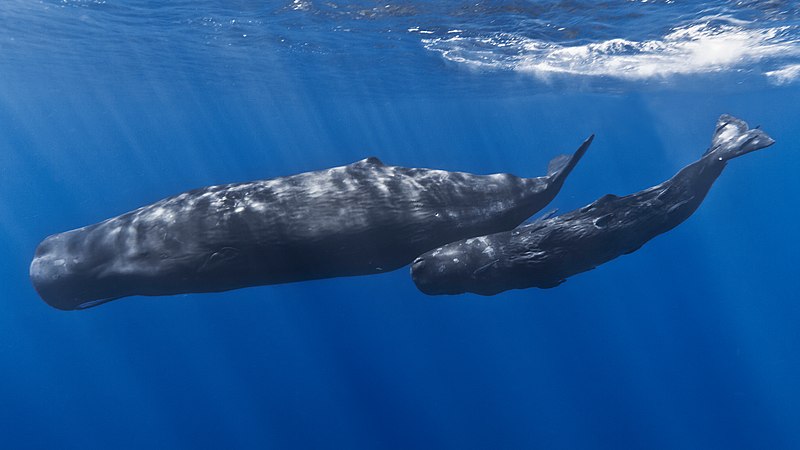“Prior to this study, there were four well-known clans, but the unique codas identified by this team proved there are at least seven distinct clans in the Pacific, and possibly more to be found in less-studied regions,” said OSU.
New research from Oregon State University (OSU) has revealed that sperm whales use specific sounds to identify whales in other pods.
Scientists said the sperm whales they studied in the Pacific Ocean used vocalizations known as “identity codas”. They described this as “Morse code-like clicking sounds” that help the whales to identify certain groups.
“They’re all kind of using the same language, but phrasing things slightly differently,” said Mauricio Cantor, assistant professor in OSU’s Marine Mammal Institute.
“As symbolic markers, the identity codas would serve as a flag: an arbitrary but useful way to advertise membership of a particular group.”
He likened the codes sperm whales use to that of sports supporters.
“If you attend a game but don’t know anyone in the crowd, a jersey is a simple way of telling everyone else which group you’re in.”
From these new findings, it’s clear-researchers say- that whales have their own kind of culture and proves that animals and people are closer in nature than we think.

“One of the main things that used to separate us is the ability for humans to have culture.
“This notion is slowly being eroded over time with studies showing that animals do learn, and they pass that information on, which can become little traditions that are stable over time.”
Over 23,000 whales codas were studied from 23 specific areas throughout the Pacific Ocean.
The recordings were taken between 1978 and 2017 from locations like Tonga, Palau, Japan, Chile, and the Galapagos Islands.
Several new clans were discovered and researchers had the opportunity to name the new clans which they say is based on their coda sounds.
“For example, the “Regular” clan has a series of clicks at a consistent beat while the “Plus One” clan has a slight pause before the last click in a sequence; along with the “Four-Plus,” “Short,” “Rapid Increasing,” “Palindrome,” and “Slow Increasing” clans,” they said.





